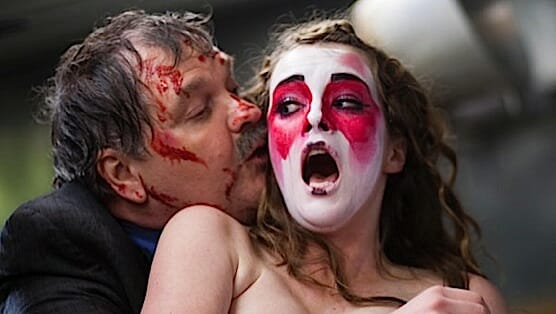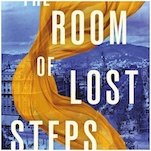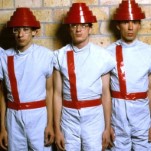Stage Fright

Stage Fright, the first feature film from writer-director and composer Jerome Sable, is billed as a mashup of the horror, comedy and musical genres (where Glee meets Scream). While its aims are ambitious, Stage Fright misses the mark on all three targets, serving up a movie bereft of humor, memorable lyrics and melodies, or genuinely scary moments. Even numerous nods to old-school slasher films and the casting of Meat Loaf and Minnie Driver as supporting characters aren’t enough push the movie past mediocrity.
In her small, but key role, Driver stars as Kylie Swanson, an actress on the cusp of Broadway stardom with her leading role in The Haunting of the Opera. Unfortunately, a maniacal killer wearing a mask that’s an amalgam of Jason Vorhees’s hockey mask in Friday the 13th and the Phantom of the Opera’s, pops into her dressing room and viciously stabs her to death. Her young twins, Camilia and Buddy, suddenly find themselves orphans, left in the care of Kylie’s boyfriend-manager, Roger McCall (Meat Loaf).
Fast-forward 10 years and Buddy (Douglas Smith) and Camilia (Allie MacDonald) are working kitchen duty at Roger’s summer theater camp as the latest crew of theater geeks descends en masse. The kids are bursting with excitement to be at camp, one of the few places they can let their freak flags fly—without worrying about getting beaten up or shoved into school lockers. Their enthusiasm, combined with lyrics revolving around being gay (“but not in that way”), easily make this scene the film’s best ensemble number.
In the mess hall, Roger introduces wunderkind director Artie Getz (Brandon Uranowitz), who announces that the camp will be mounting a revival of—wait for it—The Haunting of the Opera. The choice of stage production moves Camilia, still clearly affected by her mother’s murder, to try out for the same role. Both her moody brother and Roger think this is a really bad idea, but then again, many characters in slasher flicks do things that don’t make sense.
-

-

-

-

-

-

-

-

-

-

-

-

-

-

-

-

-

-

-

-

-

-

-

-

-

-

-

-

-

-

-

-

-

-

-

-

-

-

-

-








































